Trick Your Brain into Eating Less When You're Dining Out
We all know that restaurants tend to use more oils, fat and sugars in their food preparation. These seven lab-tested strategies for cutting back go beyond sharing entrées and skipping dessert.
By Jena Pincott
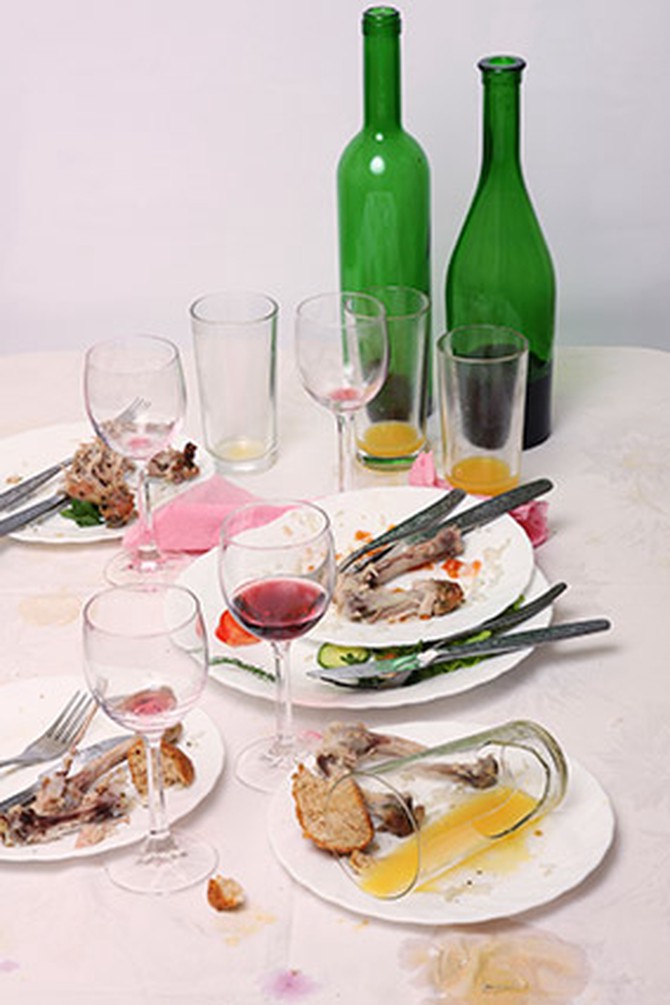
Photo: Thinkstock
Keep a Messy Table
A meal's carnage—for instance, leftover bones, fatty scraps and rinds—acts as an "environmental cue" to stop eating. When diners at an all-you-can-eat chicken-wing buffet chowed down at unbussed tables, they ate significantly less food than those whose tables had been cleared between courses. The sight of empty beer cans and wine bottles may also reduce alcohol consumption, say the study's authors, Cornell University's Brian Wansink and Collin Payne.

Photo: Thinkstock
Dine with a Man
Eat a meal with a male companion, and you'll likely consume fewer calories (720 versus 833 for women), found a study led by Molly Allen-O'Donnell at Indiana University. "Unconscious scripts" drive women to eat less in the company of men because they want to appear "more feminine," and men eat more with women to appear more "masculine," Allen-O'Donnell writes.
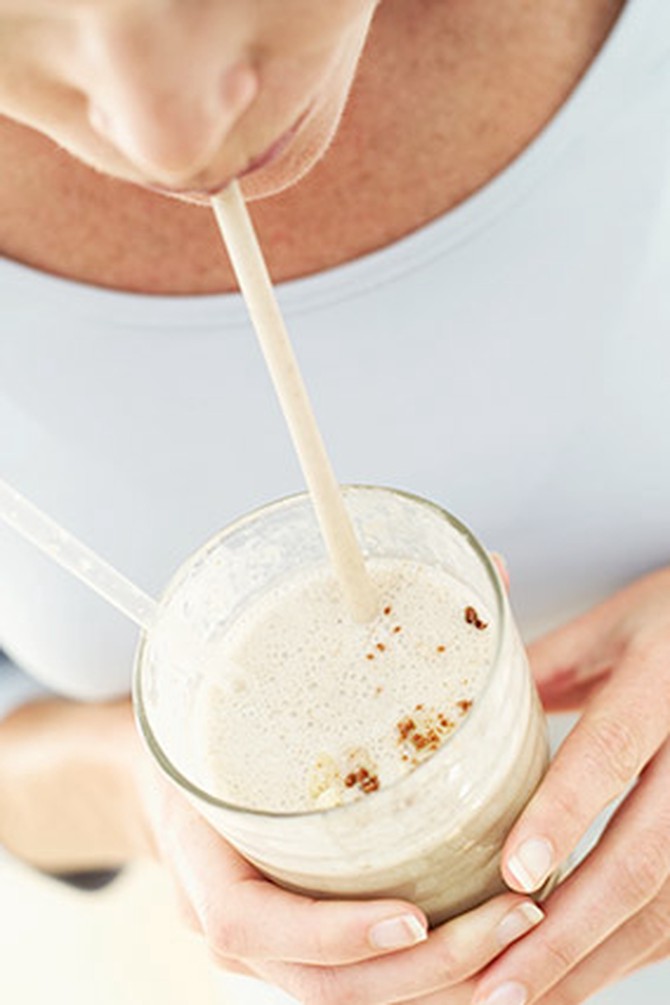
Photo: Thinkstock
Inflate Your Calories
Feeling full depends on "mindset—what one believes and expects to be eating," write Yale University researchers who told half their volunteers that a 380-calorie milkshake had nearly twice as many calories as it did and led others to believe that it was dietetic. Drinkers who thought they seriously pigged out had lower levels of the hunger hormone ghrelin—which speeds up metabolism and decreases appetite—while those who believed they drank a guilt-free diet shake remained hungry.
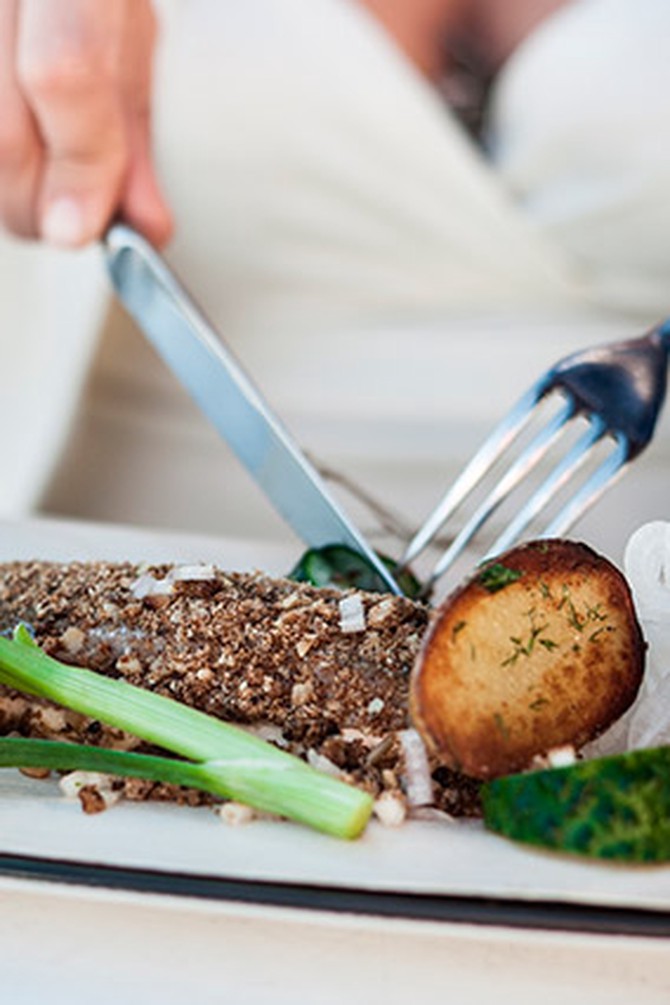
Photo: Thinkstock
Take Just One Bite
Then wait 15 minutes. A small portion is just as satisfying as one more than twice its size—but you've probably never waited to find out. Cornell University researchers found that snackers who ate bite-sized servings of apple pie, chips and chocolate felt just as sated and satisfied as those who ate 77 percent more.
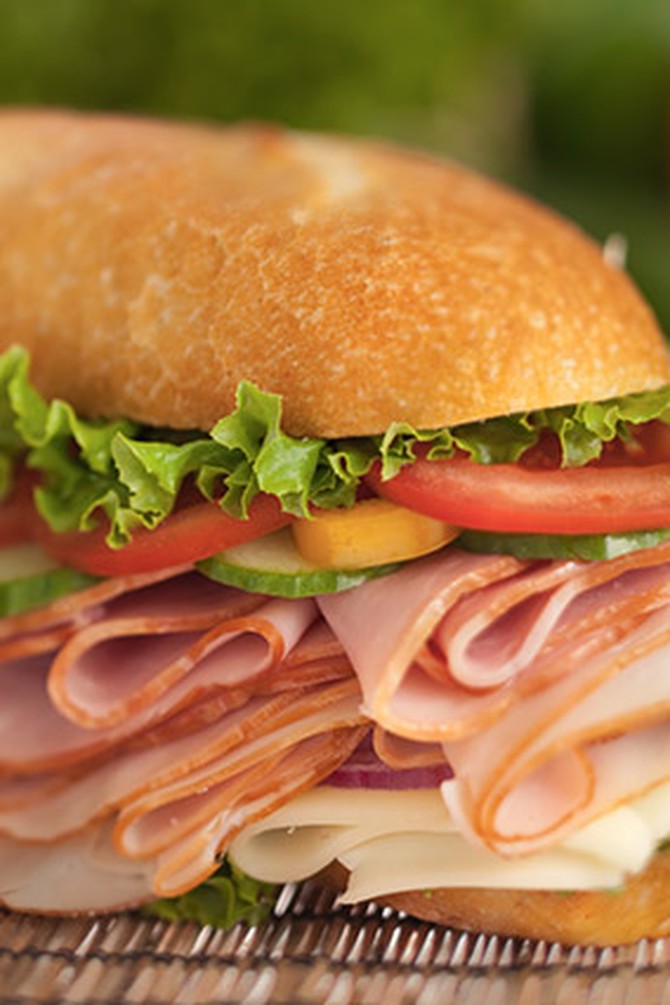
Photo: Thinkstock
Think About Yesterday's Hoagie
To reduce the amount you eat, use visual reminders of the day's previous meals—a photo snapped on your smartphone or even old food wrappers. These techniques foster awareness and attentiveness, according to University of Birmingham psychologists who found that when diners think about filling food eaten earlier, their appetite diminishes.
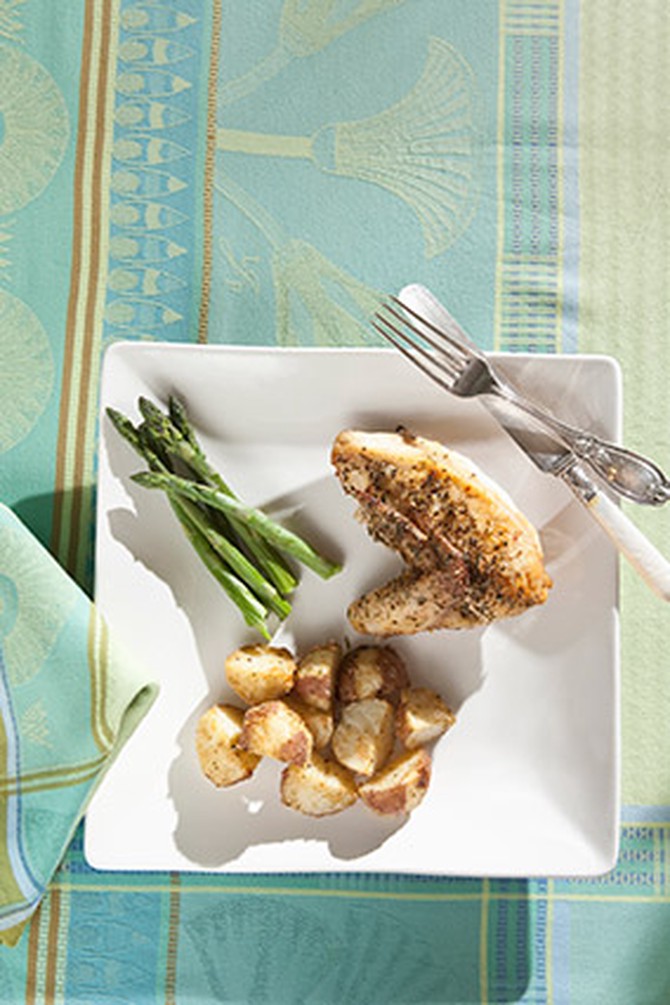
Photo: Thinkstock
Add Stop Signs
To prevent yourself from overeating, divide your food into smaller portions (for instance, put some on a small side dish or two). Subconsciously, each empty plate cues you to slow down. Yale University researchers took a tube of potato chips and colored each seventh or fourteenth one red. Snackers who encountered these "stop signs" ate less than half as many chips as those without prompts. They were also more accurate at estimating how much they ate.

Photo: Thinkstock
Drink Red Wine with the Meal
Everyone knows that honeybees are sugar addicts. But a recent study found that they lose much of their interest—and are sated more easily—when exposed to resveratrol, a compound in red wine and peanuts. Plus, they lived more than 30 percent longer than usual. (Initial studies on humans have found similar calorie-restricting benefits; more research is in progress.)
Next: Trick your brain into eating less when you're at home
Next: Trick your brain into eating less when you're at home
Published 05/24/2013
As a reminder, always consult your doctor for medical advice and treatment before starting any program.

